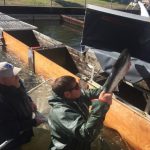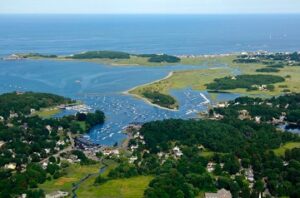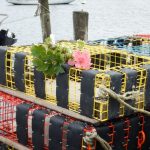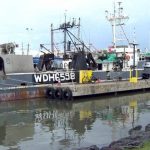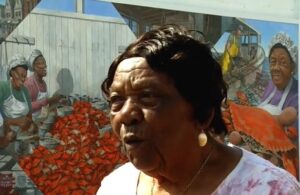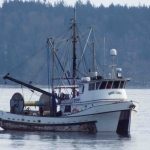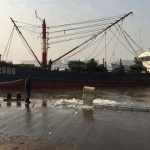Daily Archives: November 5, 2023
OPINION: North Pacific Fishery Management Council is acting to reduce bycatch
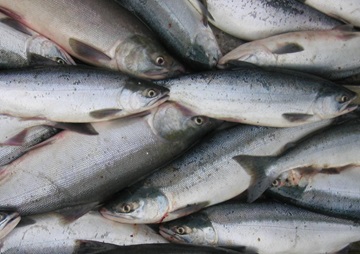 In a recent opinion piece, Brooke Woods, Linda Behnken and Nanci Morris Lyon stated, “Federal fisheries off Alaska are managed via the dictates of the North Pacific Fishery Management Council (NPFMC), which has done little to address the trawl fleet’s enormous bycatch of species immeasurably important to Alaskans.” Nothing could be further from the truth The council adopted hard caps for chinook salmon in the Bering Sea trawl pollock fisheries that vary depending upon the expected returns to western Alaska rivers. When expected returns are low, the caps are adjusted downward. Additionally, the fishing industry has stepped forward to implement chinook salmon avoidance measures that hold each vessel accountable for limiting bycatch to below the caps. In fact, the fleet is well below their caps, recognizing the need to rebuild these stocks. >>click to read<< 15:55
In a recent opinion piece, Brooke Woods, Linda Behnken and Nanci Morris Lyon stated, “Federal fisheries off Alaska are managed via the dictates of the North Pacific Fishery Management Council (NPFMC), which has done little to address the trawl fleet’s enormous bycatch of species immeasurably important to Alaskans.” Nothing could be further from the truth The council adopted hard caps for chinook salmon in the Bering Sea trawl pollock fisheries that vary depending upon the expected returns to western Alaska rivers. When expected returns are low, the caps are adjusted downward. Additionally, the fishing industry has stepped forward to implement chinook salmon avoidance measures that hold each vessel accountable for limiting bycatch to below the caps. In fact, the fleet is well below their caps, recognizing the need to rebuild these stocks. >>click to read<< 15:55
Doug Vincent-Lang
First Nations seek salmon return to Columbia Basin in new treaty with U.S.
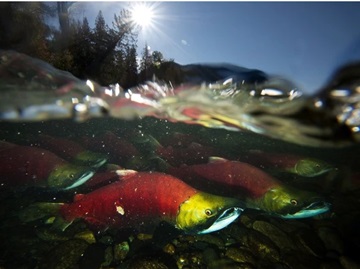 Representatives from the Ktunaxa and Syilx Okanagan nations say they continue to bring up salmon restoration in negotiations for a modern Columbia River Treaty and will not stop until a solution can be reached within or outside a new agreement. The U.S.-Canada treaty regulates the cross-border Columbia River to prevent flooding and generate hydro power. A key component of the 62-year-old treaty is set to expire in September 2024, lending urgency to the ongoing talks. “I think what we are doing in the fight to bring salmon back is vital to us moving forward,” said Lower Similkameen Indian Band Chief Keith Crow, who is a member on the Syilx Okanagan Nation’s Chiefs Executive Council and the Nation’s lead in the Columbia River Treaty talks. >>click to read<< 14:25
Representatives from the Ktunaxa and Syilx Okanagan nations say they continue to bring up salmon restoration in negotiations for a modern Columbia River Treaty and will not stop until a solution can be reached within or outside a new agreement. The U.S.-Canada treaty regulates the cross-border Columbia River to prevent flooding and generate hydro power. A key component of the 62-year-old treaty is set to expire in September 2024, lending urgency to the ongoing talks. “I think what we are doing in the fight to bring salmon back is vital to us moving forward,” said Lower Similkameen Indian Band Chief Keith Crow, who is a member on the Syilx Okanagan Nation’s Chiefs Executive Council and the Nation’s lead in the Columbia River Treaty talks. >>click to read<< 14:25
U.S. regulators will review car-tire chemical that kills salmon, upon request from West Coast tribes
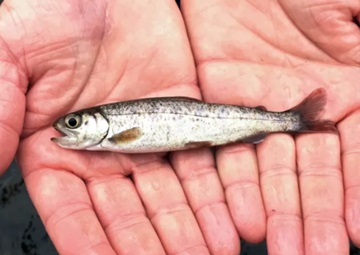 U.S. regulators say they will review the use of a chemical found in almost every tire after a petition from West Coast Native American tribes that want it banned because it kills salmon as they return from the ocean to their natal streams to spawn. The Yurok tribe in California and the Port Gamble S’Klallam and Puyallup tribes in Washington asked the Environmental Protection Agency to prohibit the rubber preservative 6PPD earlier this year, saying it kills fish — especially coho salmon — when rains wash it from roadways into rivers. Washington, Oregon, Vermont, Rhode Island and Connecticut also wrote the EPA, citing the chemical’s “unreasonable threat” to their waters and fisheries. >>click to read<< 10:14
U.S. regulators say they will review the use of a chemical found in almost every tire after a petition from West Coast Native American tribes that want it banned because it kills salmon as they return from the ocean to their natal streams to spawn. The Yurok tribe in California and the Port Gamble S’Klallam and Puyallup tribes in Washington asked the Environmental Protection Agency to prohibit the rubber preservative 6PPD earlier this year, saying it kills fish — especially coho salmon — when rains wash it from roadways into rivers. Washington, Oregon, Vermont, Rhode Island and Connecticut also wrote the EPA, citing the chemical’s “unreasonable threat” to their waters and fisheries. >>click to read<< 10:14
A business in crisis
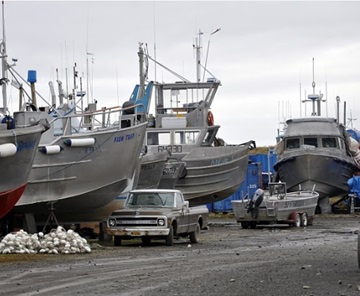 After years of choking on record runs of Bristol Bay sockeye salmon and near-record runs of heavily farmed, low-value pink salmon, the Alaska fishing industry is in chaos with processors now pleading for more government subsidies and coddled commercial fishermen demanding yet more disaster aid. One could blame global warming, which has led to historically unprecedented harvests of Alaska salmon despite whatever nonsense to the contrary the mainstream media might have reported, but the industry’s problems are far more complex than just trying to sell high-priced seafood in Western markets where the sales of animal protein are dominated by chicken, beef and pork. Some of the industry’s issues here are rooted in its long history. For most of the years after commercial fishing began in Alaska in the late 1800s, the business dealt almost wholly in canned salmon. >>click to read<< 08:41
After years of choking on record runs of Bristol Bay sockeye salmon and near-record runs of heavily farmed, low-value pink salmon, the Alaska fishing industry is in chaos with processors now pleading for more government subsidies and coddled commercial fishermen demanding yet more disaster aid. One could blame global warming, which has led to historically unprecedented harvests of Alaska salmon despite whatever nonsense to the contrary the mainstream media might have reported, but the industry’s problems are far more complex than just trying to sell high-priced seafood in Western markets where the sales of animal protein are dominated by chicken, beef and pork. Some of the industry’s issues here are rooted in its long history. For most of the years after commercial fishing began in Alaska in the late 1800s, the business dealt almost wholly in canned salmon. >>click to read<< 08:41

Wood and colleagues visit East Coast offshore wind project
“We as state legislators have a critical and essential role in fostering the offshore wind market in California by developing policies that support procurement and development, investment in ports and supply chains, and strategies and policies for maximizing local economic development,” said Wood. “We wanted to visit Massachusetts and attend this conference to learn what needs to be done and how to do it successfully. California has a number of key stakeholders and we need to make sure we are all rowing in the same direction, with the wind behind us, so to speak, avoiding any headwinds.” >>click to read<< 07:57
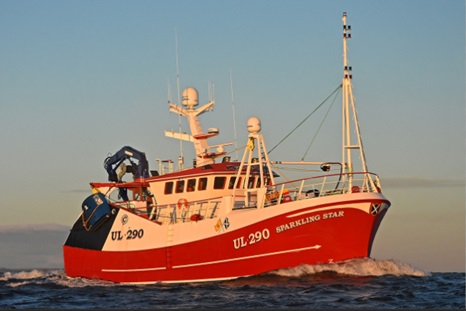
Quiksling proves its worth
The Quiksling retrieval device developed by George West proved its worth last summer when one of the crew of Scottish trawler Sparkling Star was caught in the gear when shooting away and pulled overboard. ‘Quick thinking by Ryan getting the Quiksling to him and lifted back aboard with the powerblock saved that lad’s life,’ skipper James Corbett reported. ‘It was a textbook recovery by the boys that just demonstrates the importance of proper training.’ >>click to read<<, and more here 06:47

































